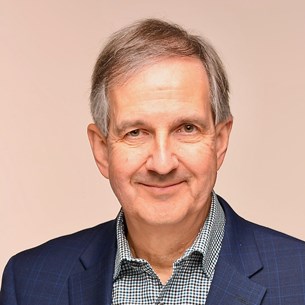Mike Glode just wrote a blog post about social media and Facebook elsewhere on ASCO Connection, and I wanted share a few quick thoughts about Twitter here. I agree with the comments below Mike’s post from Carmen Gonzalez about the growing demographic of Twitter users being older than many assume. As my heavily Photoshopped picture shows, I am a member of that generation myself, and I definitely was not raised in the social media era. I have been using Twitter with increasing frequency over the past year, to the point where I now read tweets virtually every day and try to post something at least every day or two. Without really trying, I have about 350 “followers,” most of whom I don’t know, and only some of whom I choose to follow in return. But as my number of followers has grown, and as I have chosen to follow more people with similar interests to mine, the sense of community also has grown. I use Twitter mostly as a microblogging platform. While I am trying to grow my ASCO-sponsored blog here, quite frankly it is so much easier to post something on Twitter since you only have to write 140 characters or less, in an environment where grammar, spelling, and punctuation are all somewhat optional, shall we say. I actually enjoy the challenge of compressing meaning into a 140-character post! I rarely post updates about what I am doing, since I know no one is interested in “Getting a latte at Starbucks” or “Tuna for lunch again” (that was where Twitter got its initial reputation as a worthless conduit for self-important and stultifying personal minutiae). While I do post an occasional personal rant or open-ended question, I mostly use it to share something interesting I have read about a health IT or oncology topic. Often I post a “retweet” of someone else’s tweet, typically with an embedded hyperlink to a news story, press release, or other article. However, I find Twitter most useful as a way of learning what other people think or find important - by reading their posts, following trending topics, and occasionally participating in online Twitter events like the Sunday evening healthcare/social media chats at #hcsm. One of the questions most people ask is how does a busy physician have the time to use social media. My views on this are evolving, but for me I think Twitter has replaced certain other activities, such as reading a lot of different web sites or news feeds. Plus Twitter is ubiquitous. I can read it at twitter.com on my Mac at home or PC at the office, or using a client like Tweetdeck on my iPod Touch or UberTwitter on my Blackberry. There are many great resources on the web to learn more about Twitter, so I won’t attempt to give detailed instructions on how to get started. You might find the following of interest:
A Twitter Primer For Physicians
7 Twitter Tips for Health Professionals
Take the plunge and follow me @rsm2800.


Comments
L. Michael Glode, MD, FACP, FASCO
Sep, 17 2010 10:31 PM
OK, I the ultimate skeptic will follow you Bob. I remain unconvinced that the time necessary or having a "tweetdeck" full of small messages to clutter my life even further is worth it, but we will see ! Thanks for the challenge.
Matthew S. Katz, MD
Sep, 21 2010 10:42 AM
I think this will become an increasingly important consideration for doctors. If we want to remain relevant in discussions around healthcare, then we need to engage. I've found Twitter, Digg, Yahoo! Answers and other venues helpful to learn what's important to my patients and to be more responsive, online and in clinic.
From my experience the key is transparency with privacy. I try to make sure the message I give to patients, referring MDs, and colleagues is consistent because people do pay attention. But that openness has to be balanced with HIPAA and general good etiquette.
I actually have found Hootsuite helpful, because I have multiple 'channels' on Twitter, one professional, one social and another for a pet project. It's not for everyone, but I see it as an increasingly integral part of my professional career.
Matt a.k.a @subatomicdoc